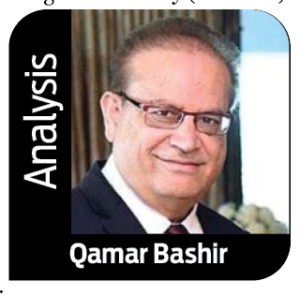 During the review of the United Nations Human Rights Council’s (UNHRC) Universal Periodic Report (UPR), which was finally adopted on July 10, 2023, Israel submitted various recommendations criticizing Pakistan’s human rights record. It objected to Pakistan’s reluctance to adopt comprehensive anti-discrimination legislation that addresses discrimination, demanded the end of widespread use of the death penalty, particularly against children and people with disabilities, urged Pakistan to take all appropriate steps to prevent arbitrary arrest, torture, and other ill-treatment, and bring those responsible for such acts to justice. On July 12, the Pakistani Foreign Office sternly rejected Israel’s recommendations, calling it “politically motivated” and “fundamentally at odds” with the positive tone of the UNHRC session, and stating that, despite Israel’s “long history of oppression” of Palestinians, Pakistan “can certainly do without its advice on protecting Human Rights.” Meanwhile, all political parties took advantage of this incredible opportunity to question the Pakistan Tehreek Insaf party for Israeli support and used all of their ammunition to construct an awesome nexus between Israel and the PTI.
During the review of the United Nations Human Rights Council’s (UNHRC) Universal Periodic Report (UPR), which was finally adopted on July 10, 2023, Israel submitted various recommendations criticizing Pakistan’s human rights record. It objected to Pakistan’s reluctance to adopt comprehensive anti-discrimination legislation that addresses discrimination, demanded the end of widespread use of the death penalty, particularly against children and people with disabilities, urged Pakistan to take all appropriate steps to prevent arbitrary arrest, torture, and other ill-treatment, and bring those responsible for such acts to justice. On July 12, the Pakistani Foreign Office sternly rejected Israel’s recommendations, calling it “politically motivated” and “fundamentally at odds” with the positive tone of the UNHRC session, and stating that, despite Israel’s “long history of oppression” of Palestinians, Pakistan “can certainly do without its advice on protecting Human Rights.” Meanwhile, all political parties took advantage of this incredible opportunity to question the Pakistan Tehreek Insaf party for Israeli support and used all of their ammunition to construct an awesome nexus between Israel and the PTI.
However, Israel was not alone in making such proposals; in fact, these recommendations, which were eventually endorsed by the UNHRC on July 10, 2023, were among the 340 made by other member nations. Pakistan accepted 70% of the 340 recommendations, totaling 253, while noting 84 and rejecting only three based on politically driven accusations, including Israel’s proposals.
Pakistan’s pragmatic, positive, and forthright response astounded the member nations, who praised and thanked Pakistan for having the bravery to accept the bulk of the recommendations, indicating its commitment to the promotion and preservation of human rights. The member states lauded the government’s efforts to improve legislation to protect vulnerable and marginalized groups, as well as moves to increase women’s participation in society. The member acknowledged that Pakistani women’s political participation was among the highest in the area and lauded the government’s efforts to reach the SDGs, as well as initiatives to make the country more robust to the harmful effects of climate change.
This praise was won by the pragmatic and charismatic leadership of Pakistan’s delegation’s head, Minister of State for Foreign Affairs, Hina Rabbani Khar who tactfully and forcefully highlighted many measures taken by Pakistan’s parliament and government over the last five years, coincidentally during the PTI’s tenure in power, to improve the legal environment for the protection of human rights in the country and strengthen its compliance enforcement mechanism. She made a persuasive argument to defend Pakistan’s human rights record and reacted to the various committees, groups, and member nations’ suggestions. These proposals, for the most part, fall into eight broad categories, including gender discrimination, religious discrimination, arbitrary and summary executions, military courts, enforced disappearances, the Antiterrorism Act of 2017, and torture and inhumane treatment of inmates.
The Committee on the Elimination of Discrimination Against Women expressed worry about Pakistan’s refusal to remove its declaration issued upon accession to the Convention on the Elimination of All Forms of Discrimination Against Women, and encouraged Pakistan to ratify the Convention and advised Pakistan to ensure that women human rights defenders and political activists can exercise their political rights and are effectively safeguarded from intimidation, reprisals, and violence, and that those guilty are tried and punished. It also stressed the removal of prejudice against disabled people.
In her response, Hina Rabbani Khar stated that Pakistan had enacted several progressive pieces of legislation in the last five years in accordance with its international human rights obligations, focusing on the fundamental rights and liberties of the most vulnerable and marginalized people including but not limited to Pakistan amendment in the 2010 Protection of Women in the Workplace Act in 2022 to broaden the definition of employees to include non-traditional workplaces and to broaden the term of workplace harassment, parliament passed the Anti-Rape (Investigation and Trial) Act of 2021 to reinforce legal deterrents against the threat of rape, the Enforcement of Women’s Property Rights Act of 2020 and acts depriving women of their property rights, setting up to helplines across Pakistan, and support desks manned only by female police officers were set up in a number of police stations, Zainab Alert Response and Recovery (Amendment) Act, 2020 was passed, and an alert system for reporting missing children was set up.She also mentioned a 2018 law that protected the fundamental rights of transgender people, including inheritance, education, decent employment, property ownership, and participation in public affairs. Notable is the fact that in her argument, she invoked the authority of legislation and initiatives enacted by the PTI government.
Four mandate holders for the special procedure addressed issues pertaining to arbitrary and summary executions, safeguards pertaining to fair trial and due process, the prohibition of torture and other cruel, inhuman, or degrading treatment, and the protection of juvenile offenders’ rights by the government under the application of the Anti-Terrorism Act of 1997. The Human Rights Committee acknowledged that military courts ceased to exist in March 2019, but regrets that 59 prisoners were executed based on military court sentences. Diverse holders of mandates for special procedures expressed concern over the consistent rise in enforced disappearances and reaffirmed their recommendation that Pakistan criminalize enforced disappearance. The Special Rapporteur on torture and other cruel, inhuman, or degrading treatment or punishment expressed grave concern regarding the lack of legislation for the prevention and punishment of torture and urged Pakistan to enact legislation defining and criminalizing torture in accordance with international law. Diverse mandate holders for special procedures reaffirmed their concern that the Anti-Terrorism Act and the Pakistan Protection Ordinance appear to permit forms of arbitrary detention that facilitate prolonged incommunicado detention, torture, and enforced disappearances, which frequently result in the extrajudicial execution of the victim. The United Nations Educational, Scientific, and Cultural Organization (UNESCO) advised Pakistan to amend its existing laws, including the Prevention of Electronic Crimes Act of 2016 and the Citizen Protection (Against Online Harm) Rules of 2020. Additionally, UNESCO urged Pakistan to continue investigating cases involving the assassination of journalists and to report voluntarily to UNESCO on the status of judicial follow-up.
Hina Rabbani while forcefully defending the country argued that the Torture and Custodial Death (Prevention and Punishment) Act, 2022 was enacted to combat torture and preserve fair trial and due process rights and a Juvenile Justice System Act, which mandated the handling of juvenile cases in accordance with human rights principles, was passed in 2018. While responding to the question of death penalties she argued that Pakistan had imposed a moratorium on the death penalty for several years. However, the moratorium had been lifted after the horrendous terrorist attack on the Army Public School in Peshawar in 2014. The Minister highlighted that the death penalty was applied only for the most severe crimes, in full compliance with due process, under a final judgment rendered by a competent court and with the right to seek pardon or appeal for commutation, and that there had been no executions in Pakistan since December 2019. She also referred to the Railway Act which had been amended in October 2022, to reduce the provision for capital punishment to a life sentence for acts of sabotage targeting railway networks. While responding to the observations of harassment of journalists, she said that the landmark Protection of Journalists and Media Professionals Act, 2021 had been enacted, reflecting the high importance Pakistan attached to the freedom of opinion and expression.
While fortifying her defense, she referred to the National Education Policy Framework 2018 which had been formulated to accelerate the pace of universal and equal access to quality education by all, updation of the National Action Plan for Human Rights in 2020 to make it more comprehensive and address any previous gaps. An Action Plan on Business and Human Rights in 2021 to ensure that human rights due diligence was conducted in the business sector, human rights awareness programme 2020 launched to educate, and raise awareness among, the public and office bearers about international human rights commitments and follow-up actions,a human rights information management system had been established at the federal and provincial levels in 2021 for the collection of data on human rights indicators, the National Commission for Human Rights had launched policy guidelines 2018 on the protection of human rights defenders to ensure the safety of defenders and to the National Commission on Rights of the Child, established in 2020, monitored child rights situations and addressed victims’ grievances. Again all legal instruments which provided foundations of her arguments were passed during PTI’s tenure. All these acts which provided the foundation of the Minister’s arguments were passed during the tenure of PTI in power.
Some speakers said it was concerning that a law was passed in 2023 which tightened blasphemy laws, which were often used to persecute minority groups. The Government lacked the political will to protect the rights of religious minorities and had rejected multiple recommendations which called for the repeal of blasphemy laws. There had been concerning incidents when mobs targeted those accused of committing blasphemous crimes, often resulting in their deaths. A number of speakers called on Pakistan to repeal the laws, which were incompatible with the country’s international obligations. It was also regretful that Pakistan had not adopted a comprehensive anti-discrimination law which allowed religious minorities to effectively challenge the State and other actors.
Khar said Pakistan was taking due care of the rights of minorities in the country. “Individuals belonging to various religions are equal citizens of Pakistan and as a responsible state, we are fully committed to protecting and promoting their fundamental rights and freedoms, and added that Pakistan has taken safeguards against the misuse of the blasphemy law in the country, citing Section 211 of the Pakistan Penal Code which calls for action against any person who falsely accuses another person of blasphemy.
In its concluding remarks, the UNHRC praised Pakistan for accepting most of the recommendations and acknowledged that it had paid particular attention to the rights of women and children, as well as education and health, among others. Pakistan was also mindful of the recommendations made in other areas, such as minorities, media, and law enforcement; it had viewed them on merit and they would remain part of the overall human rights agenda in the days ahead which it added would help in furthering respect and protections for all its people, especially in the field of economic, social and cultural rights. It appreciated Pakistan’s consistently demonstrated strong political will to promote and protect all human rights of everyone and to enact wide-ranging legislative, policy, and institutional steps taken across the spectrum of civil, political, economic, social and cultural rights in line with its international human rights obligations, focusing on the fundamental rights and freedoms of the vulnerable and the marginalized. It applauded Pakistan’s resolve to take further meaningful steps to implement the accepted recommendations, especially pertaining to sustainable development, women’s empowerment, protection of the child, poverty alleviation, social protection schemes, and protecting rights of persons with disabilities, among others.
Hina Rabbani Khar was able to defend most of the critical recommendations and save face because of the legislations enacted and administrative and enforcement steps taken during 2018 to 2022 and win praise and appreciations of UNHRC members, which was incidentally the period of PTI in power, therefore it is only fair that while creating an evil nexus between PTI and Israel, proper acknowledgement of PTI’s legislative and administrative efforts may also be made.
The author is the former Press Secretary of the President of Pakistan, the former Press Minister of the Embassy of Pakistan in France and also has been the former MD / CEO Shalimar Recording and Broadcasting Company (SRBC)





